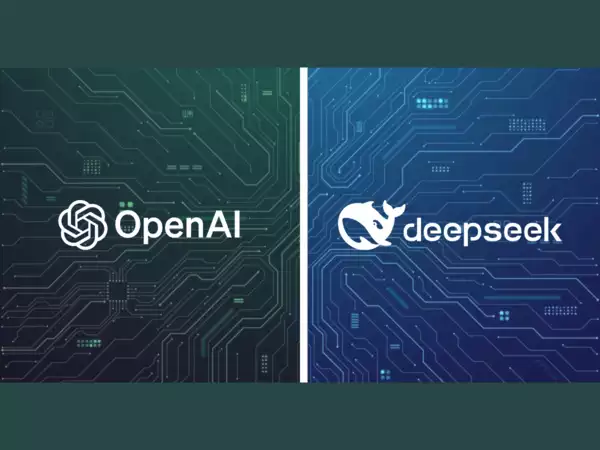OpenAI’s Legal Battle in India: A Complex Challenge

OpenAI, the artificial intelligence powerhouse, is currently embroiled in a significant legal dispute in India. The case, initiated by the domestic news agency ANI, revolves around allegations of copyright infringement. OpenAI argues that Indian courts lack jurisdiction over its US-based operations. This legal battle is particularly noteworthy as it unfolds in a country where other US technology firms have faced similar scrutiny. With millions of users in India, OpenAI’s position in this market is crucial, making the outcome of this case even more significant.
OpenAI’s Position and Legal Arguments
OpenAI has taken a firm stance in its legal defense, asserting that Indian courts do not have the authority to adjudicate matters related to its operations based in the United States. The company claims that its terms of service specify that any disputes must be resolved in San Francisco. Furthermore, OpenAI emphasizes that it does not maintain any servers or data centers in India, which it argues further removes the jurisdiction of Indian courts over its business activities.
Despite these claims, legal experts in India suggest that OpenAI’s arguments may not hold up in court. Dharmendra Chatur, a partner at Poovayya & Co., points out that many foreign tech companies, including Google and Facebook, regularly face litigation in India. The courts often consider whether a service is accessible to Indian users when determining jurisdiction. This precedent raises questions about OpenAI’s ability to evade legal scrutiny in India, especially given the increasing accessibility of its services to Indian consumers.
The case has gained traction as prominent Indian publishers and media groups, including those associated with billionaires Gautam Adani and Mukesh Ambani, have united against OpenAI. This coalition underscores the seriousness of the allegations and the potential implications for OpenAI’s operations in India.
The Implications of the Lawsuit
The outcome of the OpenAI-ANI case could have far-reaching consequences for the company and its operations in India. If OpenAI successfully argues that Indian courts lack jurisdiction, it may avoid facing the copyright lawsuit altogether. However, if the court rules against OpenAI, the company will be compelled to address ANI’s demands, which include the deletion of allegedly infringing training data and a potential payment of $230,000 in damages.
The Delhi court is scheduled to hear the case next in February, focusing on jurisdiction and other related arguments. Legal experts suggest that the court’s decision could set a precedent for how foreign tech companies are treated in India, particularly regarding copyright disputes. This case could also influence how Indian courts interpret jurisdiction in the digital age, especially as more services become globally accessible.
OpenAI’s legal challenges are not limited to India. The company is also facing similar copyright infringement lawsuits in the United States, Germany, and Canada. These ongoing legal battles highlight the broader issues surrounding copyright in the digital landscape, where the lines between fair use and infringement can often be blurred.
Comparative Legal Precedents and Challenges
The legal landscape in India is evolving, particularly concerning technology and copyright issues. Lawyers involved in the OpenAI case have cited a 2022 ruling involving Telegram as a relevant precedent. In that case, an Indian author sued Telegram for copyright violations, but the company initially argued that it was governed by laws in Dubai and did not have servers in India. However, the Delhi court ruled that the conventional concepts of territoriality no longer apply, allowing Indian courts to hear the case.
OpenAI’s legal team is likely to reference a 2009 precedent that suggests merely being accessible in India does not automatically grant Indian courts jurisdiction over foreign defendants. This argument could be crucial for OpenAI if the court decides to hear the case. However, legal experts warn that even if OpenAI’s jurisdictional argument fails, it could still impact the enforcement of any court orders outside India.
The Indian government’s relationship with Big Tech has been complex, with officials emphasizing that foreign companies must comply with local laws. This sentiment was echoed by India’s IT minister in 2021, who criticized US tech firms for asserting that they would only be governed by American laws. The ongoing tensions between the Indian government and foreign tech companies could further complicate OpenAI’s legal battle.
Future Prospects and OpenAI’s Commitment to India
Despite the legal challenges, OpenAI remains committed to its operations in India. The company has reported a significant uptake of its ChatGPT service in the country, indicating a strong user base. OpenAI’s India executive, Pragya Misra, has emphasized the importance of the Indian market, stating that the company recognizes its potential for growth.
In light of these developments, OpenAI’s leadership, including CEO Sam Altman, is scheduled to visit India in early February. This visit may signal the company’s intent to strengthen its presence in the region, even as it navigates the complexities of the legal landscape. The outcome of the ongoing lawsuit will undoubtedly influence OpenAI’s strategy and operations in India moving forward.
As the legal proceedings unfold, all eyes will be on the Delhi court’s decision. The case not only represents a significant moment for OpenAI but also serves as a critical juncture for the intersection of technology, copyright law, and jurisdiction in the digital age.
Observer Voice is the one stop site for National, International news, Sports, Editor’s Choice, Art/culture contents, Quotes and much more. We also cover historical contents. Historical contents includes World History, Indian History, and what happened today. The website also covers Entertainment across the India and World.

